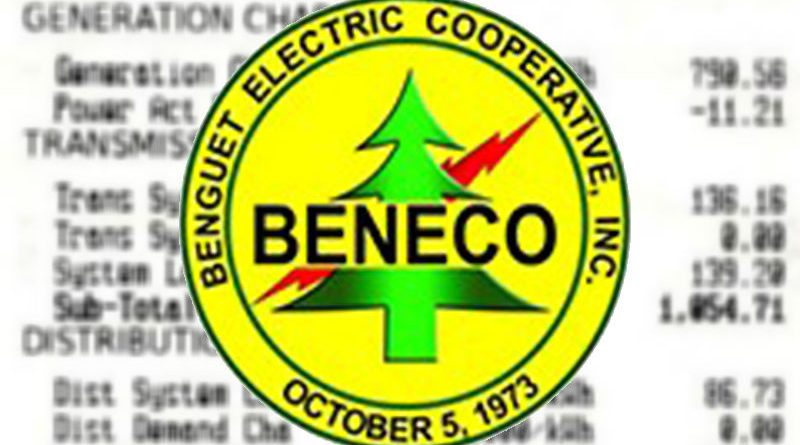BAGUIO CITY – The clustering and consolidation approach continues to advance in the Cordillera Administrative Region (CAR) as one strategy of the Department of Agriculture (DA) through its Farm and Fisheries Clustering and Consolidation (F2C2) Program to level up the agriculture sector in the country.
Crissa Genice Datic, Regional F2C2 Program Focal Person, said that since the implementation of the Program in 2021, there are already 32 organized clusters in the Cordilleras at present. These clusters represent various commodities namely hybrid and heirloom rice, hybrid corn, high value crops, Arabica coffee, livestock, and fishery. The Program was piloted in the provinces of Kalinga and Ifugao with four pilot clusters.
The F2C2 Program, which is implemented through Administrative Order No. 27, series of 2020, aims to strengthen small farmers and fishers in the country through the clustering and consolidation of their production, processing, and marketing activities, including the pooling of their available resources, as community business enterprises. Specifically, the farmer’s groups are clustered based on their geographic locations and similarities of agricultural commodities and activities to improve the agricultural landscape through maximized use of provided agricultural interventions.
Jeffrey Gaspar, President of the Alfonso Lista Rice Cluster Federation, Inc., shared that the rice farmers’ cooperatives and associations (FCAs) in Alfonso Lista, Ifugao, embraced clustering primarily for the development of their custom services and agricultural enterprises in the municipality. The cluster is among the pilot clusters. It is composed of 13 regular FCAs and 3 associate FCAs as members.
“Agyamanan kami ta naorganize daytoy nga rice cluster ket babaen iti daytoy ket na-organize kami met nga FCAs iti maymaysa nga objective nga pagmaymaysaen mi ti plano mi nga agbalin nga micro enterprise association,” Gaspar added.
We are glad that the rice cluster was organized because through this, the FCAs were also organized with one objective to unify our plans to become a micro-enterprise association.
Since their organization from individual FCAs to clustered FCAs, the Alfonso Lista Rice Cluster is a show window of the collaborative interventions being given not just from the DA-CAR but also from its attached bureaus and agencies such as the Agricultural Training Institute-Regional Training Center, Philippine Rice Research Institute, and the Philippine Center for Post-Harvest and Mechanization (PhilMech). Aside from technical support and capacitation training, the rice cluster also received various agri-machineries like rice dryer, walk-behind and ride-type rice transplanters, rice seeder, mechanical dryer, and four-wheel tractor. These are being managed by the cluster through its mechanization group.
Michael Johnson Mabalo, the cluster’s Assistant Manager for Mechanization, shared that through clustering, they were able to come up with uniform rental fees for the agri-machineries which is lower than the prevailing price of the private service providers. This is formalized through their implementing rules and regulations on mechanization.
“Through seminars, ado ti nasuruk kas kuma iti capacitation, how to handle people, dagiti members…on farming met, napalag-an ti trabaho mi ken nasolbar ti problema ti manpower,” Mabalo added when asked how the Program and the mechanization have contributed to his personal life.
Through seminars, I learned a lot such as capacitation and how to handle people, the members. In terms of farming, mechanization made farm work easier and solved the problem of human resources.
Rental fees collected are pooled to fund the completion of the warehouse building to house the cluster’s rice mill and other agri-machineries.
Recently, the cluster conducted a meeting to review their service fees for possible adjustment to ensure that these are advantageous to the cluster members. This is also considering the challenge of competing with private individuals who are also offering similar services in the municipality. Thus, Gaspar is encouraging the FCA members to continuously patronize the cluster’s services to further suffice the ongoing projects of the cluster such as the rice mill dryer.
Moving forward, the Alfonso Lista Rice Cluster is encouraging individual farmer-members to adopt good agricultural practices or GAP with the growing demand for safe and quality products. Compliance with GAP is also becoming one of the requirements for the availment of agricultural programs and projects, particularly in agri-enterprises. They also consider shifting into a cooperative by next year to further strengthen its services and the active participation of its individual farmer-members.
The clusters are guided by their developed Cluster Development Plans (CDP). The CDPs serve as their master plans for their growth and development as clusters through agri-enterprises.
“Patuloy po nating pagbutihin at tapusin ang ating mga nasimulang cluster development plans because these plans are your master plans for the next five years based on your identified priority needs for the development of your cluster and the agricultural sector in your area,” underscored Ms. Datic. By Janice B. Agrifino & Cy-J E. Waytan















